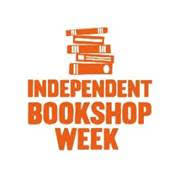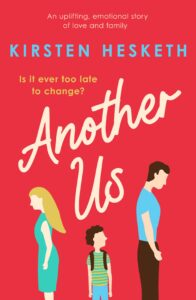The Booksellers Association (BA) hasIndependent Bookshop Week 2024 Announces Ambassadors and Early Initiatives announced this year’s official campaign spokespeople and initial plans for Independent Bookshop Week (IBW), the annual celebration of independent bookshops across the UK and Ireland. It will take place between 15-22 June 2024 with Hachette UK returning as the headline sponsor.
This year, renowned broadcaster and author of Murder at the Monastery (6 June 2024), Rev Richard Coles, celebrated journalist and author of Everything is Everything: A Memoir of Love, Hate and Hope, Clive Myrie and award-winning novelist and author of In The Shadow of the Wolf Queen, Kiran Millwood Hargrave will be participating in IBW as official ambassadors. They will also be appearing at bookshop events all across the UK – with more details and venues to be revealed.
Independent Bookshop Week 2024 returns with a packed line-up of exciting initatives from the inaugural Big Book Club to the sixth year of High Five for Bookshops supported by National Book Tokens and many more.

EXCLUSIVE POEM
With the success of poems created by Brian Bilston, Hollie McNish and Dean Atta, critically acclaimed spoken word performer George Mpanga, known for his artistry as George the Poet, has created a bespoke Independent Bookshop Week poem to support the campaign. The poem will be shared on social media at 6pm on Wednesday 19 June.
HIGH FIVE FOR BOOKSHOPS
High Five for Bookshops, the successful national giveaway from National Book Tokens, is back for a sixth year. The giveaway supports indie bookshops across the UK and Ireland to reward their most loyal local customers.
Bookshops participating in Independent Bookshop Week each receive 100 vouchers with unique codes, which customers can use to claim a £5/€5 National Book Tokens e-Gift card to spend instore.
Since its launch, High Five has continued to grow year-on-year, with 92,000 vouchers sent to indies in 2023 – a 200% increase since 2019. The giveaway is a valuable, footfall-driving asset to the annual Independent Bookshop Week celebrations.
BIG BOOK CLUB
Launching this year, the Big Book Club strand of IBW will celebrate the role of indies in bringing people together via a shared love of reading. The Big Book Club will see indie bookshops across the UK and Ireland holding book club evenings on the same day, on Wednesday 19 June. Participating bookshops confirmed so far include: The Beckenham Bookshop, Booka Bookshop (Bridgnorth), Booka Bookshop (Oswestry), Book-ish (Abergavenny), Book-ish (Crickhowell), Hungerford Bookshop, Jaffé & Neale, The Mainstreet Trading Company, and Wantage Bookshop.
BOOKSHOP CRAWLS
All booklovers are once again invited to organise their own Bookshop Crawl to celebrate IBW. The Bookshop Map on the homepage of the Books Are My Bag website is a useful resource to find your closest local indies and plan your route.
INDIE TWINNING
With its success making it a firmly established strand of IBW, Indie Twinning returns for a fifth year, with independent publishers and independent bookshops teaming up to develop bespoke programmes of activity across the country. Look out for special offers, exclusives, social media take-overs, bespoke bookshop windows and much more.
GUEST BOOKSELLING
Authors, poets and illustrators are invited to get involved with IBW with Guest Bookselling. Allowing guest booksellers to learn more about a new side of the booktrade and supporting local indies, and an exciting opportunity for bookshop frequenters to have a chance encounter with authors, poets and illustrators, this is a win-win for all!
BOOKSHOP.ORG FREE SHIPPING
Bookshop.org, the online bookshop with a mission to support and celebrate indies in the UK, will again be offering free shipping on any purchases made on the website the last weekend of IBW, Saturday 22 and Sunday 23 June 2024.
Rev Richard Coles, said: “Booksellers around the market towns and cathedral cities of the UK have been so very genial and welcoming to me as I’ve spent many an enjoyable day visiting them to talk about Canon Daniel Clement, parish murders and dachshunds. I wouldn’t be in the wonderful position that I now find myself in – crime writer! – without their considerable efforts and support, so I am hugely grateful. It all began for me with an independent bookseller, The Oundle Bookshop, in Northamptonshire where, when I was 8 years old, my grandfather bought me my first proper book – The Complete Sherlock Holmes Short Stories – and without knowing it set me on this gilded path.”
Kiran Millwood Hargrave, said: “Independent bookshops are like treasure troves staffed by the most erudite and lovely dragons. Each knows their hoard inside out and I feel so lucky whenever I get to visit and ask for their recommendations, coming away with hidden gems and glittering storytelling riches. I love the high ceilings of Forum Books in Corbridge, the gorgeously-painted windows of Booka Bookshop, the pitch perfect curation at Porty Books and of course the dazzling array at my local, Mostly Books. But every shop I visit is distinct and precious, and offers an experience as unique as the people who run them – and that is what makes indie bookselling such a vibrant and vital part of the book world.”
Hazel Broadfoot, President of the Booksellers Association, said: “This is such a wonderful celebration of indie bookshops, and everything they bring to their local communities. Bookshops are not just about selling books – they connect people with books and authors – and each other! Independent Bookshop Week is an opportunity to shine a light on their hard work and creativity that brings so many cultural benefits to their high streets. In my bookshop, Village Books Dulwich, we have our planning under way – we’ll be joining in the fun and hosting lots of events for our customers of all ages to celebrate the power of books and reading.”
Emma Bradshaw, Head of Campaigns at the Booksellers Association, commented: “Independent Bookshop Week is one of the highlights in the book industry calendar. Throughout the week, we aim to celebrate not only the vital role the independent bookshops play in their local communities, but also the work of individual booksellers. We are thrilled to have the support of so many parts of the book trade; it’s a joy to see everyone brought together by the joy of books and a love for independent bookshops. This year’s programme of events, initiatives and exclusives is sure to be better than ever, and we’re very excited to kick off the celebrations in June!”
David Shelley, CEO Hachette UK, said: “We’re proud to continue our headline sponsorship of Independent Bookshop Week, an integral part of our happy and important partnership with the Booksellers Association. Independent bookshops are the beating heart of our industry, and this is the perfect opportunity to celebrate the vital work that they do, up and down the UK and Ireland, getting our author’s books into the hands of readers with such passion and dedication.”
Follow the latest developments via social media: #IndieBookshopWeek @BooksAreMyBag







